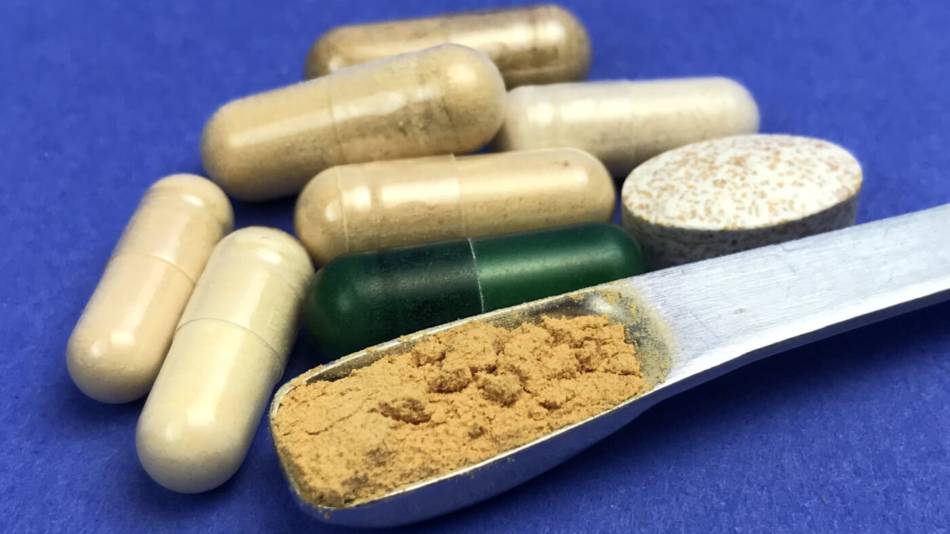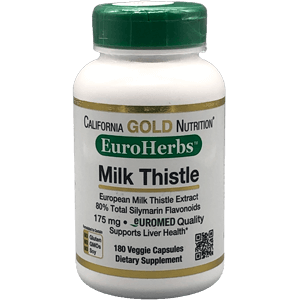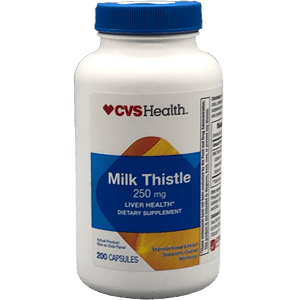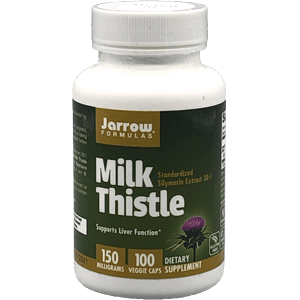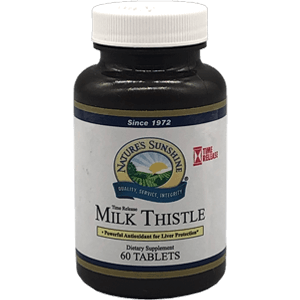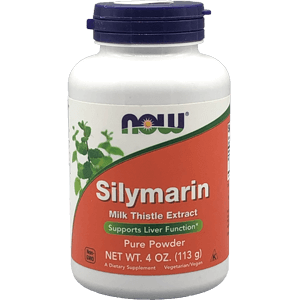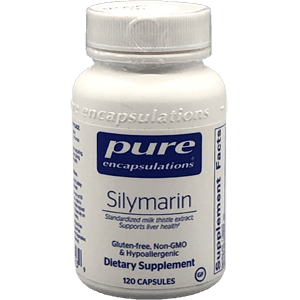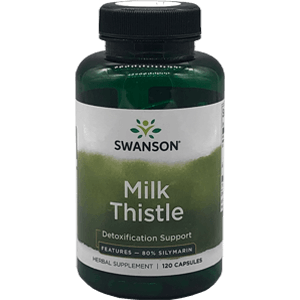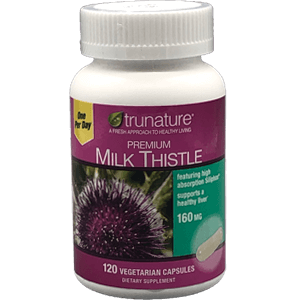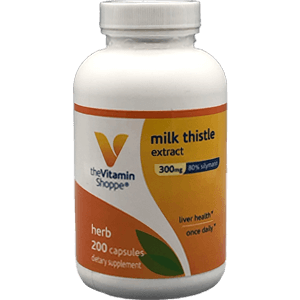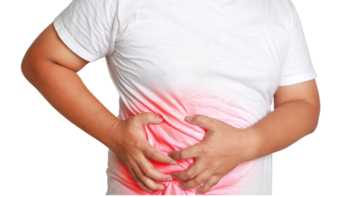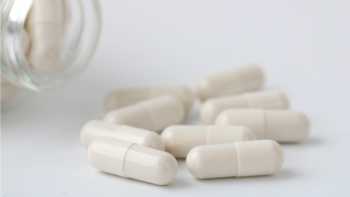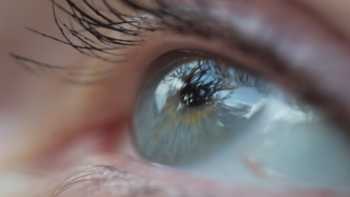Summary
-
What does milk thistle do?
For people with type 2 diabetes, milk thistle may decrease blood sugar, hemoglobin A1c, and LDL cholesterol levels when used with conventional therapy. The evidence is mixed as to whether it improves liver function in people with chronic active hepatitis (see What It Does).
-
What is silymarin?
Silymarin is the term for a specific group of chemically-related compounds found in milk thistle. Silymarin is thought to be responsible for some of the herb's effects and is used as a marker of milk thistle strength (see
What It Is).
-
What to look for with milk thistle?
Milk thistle comes in various forms and concentrations, but most clinical studies of milk thistle's effectiveness have used extracts at a dose of about 200 mg of extract taken 2 to 3 times per day. The amount of silymarin in these extracts is about 58% of its weight (although this has been reported as 80% when using a non-specific, older method of testing known as UV-VIS) (see What to Consider When Buying and Using for dosage and other details).
-
What did CL find in its tests of milk thistle supplements?
The amount of silymarin per serving ranged from 61.2 mg to 202 mg. For most products, these amounts were far less than a consumer might expect from labels, leading CL to rate several products as having poor labeling (see What CL Found).

Which is the best milk thistle supplement?
Among products Approved for Quality by ConsumerLab.com one was chosen as CL's Top Pick for providing a substantial amount of silymarin, appropriate usage instructions, and superior value.-
What are the side effects of milk thistle?
Milk thistle is generally well tolerated but, infrequently, can have a laxative or other gastrointestinal side-effect. Allergic reactions can occur, especially in people who are sensitive to related plants and it may interact with certain medications. People with liver disease should avoid milk thistle sold as whole seed, cut herb, or powders, which have the potential to be contaminated with yeast and mold (fungi) that can produce toxins harmful to the liver (see Concerns and Cautions).
Products tested in 2020
+— 15 sources
In addition the results of its expert testing, ConsumerLab uses only high-quality, evidence based, information sources. These sources include peer-reviewed studies and information from agencies such as the FDA and USDA, and the National Academy of Medicine. On evolving topics, studies from pre-print journals may be sourced. All of our content is reviewed by medical doctors and doctoral-level experts in pharmacology, toxicology, and chemistry. We continually update and medically review our information to keep our content trustworthy, accurate, and reliable. The following sources are referenced in this article:
- Ferdowsi, Phytother Res 2024
- Grossman, Can J Diabetes 2018
- Huseini, Phytother Res 2006
- Kheong, Clin Gastroenterol Hepatol 2017
- Ladas, Cancer 2010
- Saberi, Phytother Res 2020
- Solhi, Caspian J Intern Med 2014
- Velussi, J Hepatol 1997
- Fenclova, Sci Rep 2019
- Hawke, J Clin Pharmacol 2010
- Holtmann, Aliment Pharmacol Ther 2003
- Salem, Plant Foods Hum Nutr 2015
- Lash, J Clin Pharm Ther 2019
- Tournas, Int J Food Microbio 2013
- Veprikova, J Ag Food Chem 2015
You must
be a member to get the full test results along with ConsumerLab.com recommendations and quality ratings. You will get results for nine milk thistle supplements selected by ConsumerLab.com, including capsules, tablets and powders.
In this comprehensive review, you'll discover:

 Which milk thistle supplements failed our tests and which ones passed
Which milk thistle supplements failed our tests and which ones passed CL's Top Pick among milk thistle supplements for providing a substantial amount of silymarin, appropriate usage instructions, and superior value
CL's Top Pick among milk thistle supplements for providing a substantial amount of silymarin, appropriate usage instructions, and superior value The evidence behind other ingredients in liver formulas such as artichoke extract, schizandra (schisandra) extract, and phyllanthus extract.
The evidence behind other ingredients in liver formulas such as artichoke extract, schizandra (schisandra) extract, and phyllanthus extract.
 How "silymarin," "silybin," and "flavonoids" differ as listed ingredients in milk thistle
How "silymarin," "silybin," and "flavonoids" differ as listed ingredients in milk thistle  The clinical evidence for and against milk thistle for lowering blood sugar and cholesterol levels, improving liver function, and other uses of milk thistle
The clinical evidence for and against milk thistle for lowering blood sugar and cholesterol levels, improving liver function, and other uses of milk thistle  Concerns, cautions, side effects, and drug interactions with milk thistle
Concerns, cautions, side effects, and drug interactions with milk thistle
As a ConsumerLab.com member, you may print a copy of this report for your personal use.
You can access a special print version by clicking the "Print" icon in the upper right corner of this report.
You can then use your web browser's print functions to print the whole report or just selected pages.
You may also email or post a link to this report using the web address above.
Non-members using the link will see a free summary and can join to view the full report.
Other means of copying or distributing this report, in part or full, are not permitted.
If you are sight-impaired and your computer is having trouble converting the text in this report to speech,
contact us for assistance at Membership@ConsumerLab.com or by
phone at 914-722-9149.

